Photo: Xavi Torrent/Getty Images
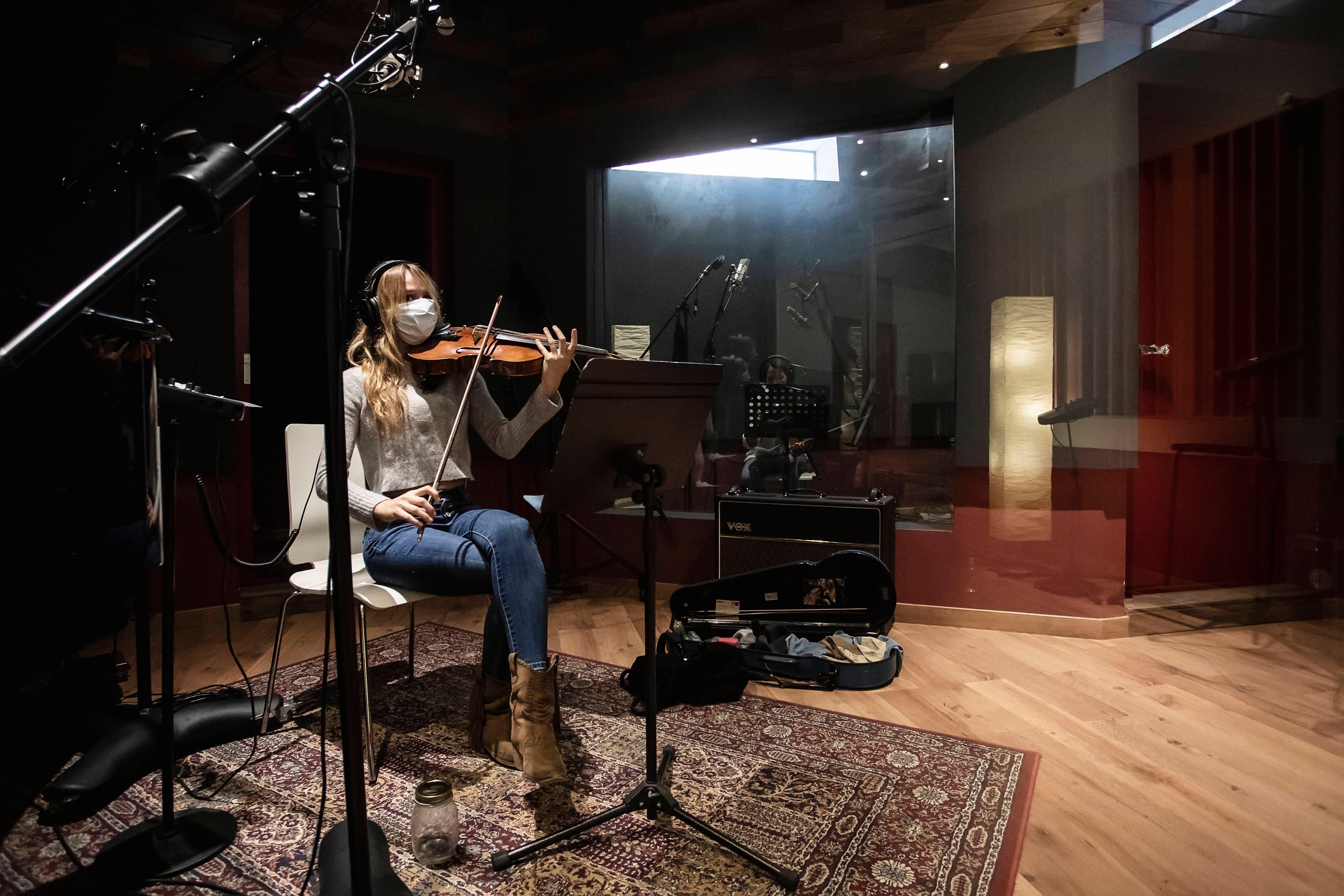
Uixi Amargós recording during the pandemic
news
Help Independent Tracks Succeed (HITS) Act Reintroduced in the House and Senate
The bipartisan and bicameral HITS Act has been reintroduced in the House of Representatives and Senate, delivering much-needed relief to music creators if passed
Today, the bipartisan and bicameral Help Independent Tracks Succeed (HITS) Act was reintroduced in Washington. The Senate version of the bill is again introduced by Sens. Dianne Feinstein (D-Calif.) and Marsha Blackburn (R-Tenn.), and the companion bill in the House of Representatives is sponsored by Reps. Linda Sánchez (D-Calif) and Ron Estes (R-Kan.). The House bill is also supported by Reps. Judy Chu (D-Calif.), Suzan DelBene (D-Wash.), Michael McCaul (R-Texas), and Grace Napolitano (D-Calif.).
The HITS Act, which was first introduced last Congress, is designed to allow artists and record producers to deduct 100 percent of sound recording production expenses in the year they are incurred, rather than amortized over the life of the recording, typically 3-4 years. The bill eases the financial burden placed on independent artists by removing the multi-year amortization requirement and allowing an individual to fully expense the cost of new studio recordings on their taxes, up to $150,000.
The HITS Act also aligns the tax code for music production with similar provisions for other creative industries. Currently, qualified film, live theatrical, and television production companies enjoy the ability to deduct 100 percent of their production expenses in the year such expenses are incurred.
The HITS Act would also incentivize the production of new sound recordings at a time when music creators still need help overcoming the financial fallout resulting from the COVID-19 pandemic. With tours canceled and gigs indefinitely delayed, many creatives are left without access to their traditional revenue streams. Congress continues to address the unequal impact felt by the creative workforce through enhanced unemployment insurance, extending Small Business Administration loan programs, and creating targeted relief programs for independent venues.
While these relief programs are a welcomed resource for the music ecosystem, Congress must continue to provide targeted assistance for the most vulnerable creators – independent artists. That is why the Recording Academy collaborated with policymakers on finding a solution that encourages and incentivizes the creative workforce to safely return to the studio.
<blockquote class="twitter-tweet"><p lang="en" dir="ltr">Music producers & creators were among the first out of work as tours were canceled, venues shuttered, & studio sessions were postponed.<br><br>The HITS Act will make things just a little easier for the small, independent creators who make the music we love!<br><br>▶️ <a href="https://t.co/lZnvgzUNvd">https://t.co/lZnvgzUNvd</a> <a href="https://t.co/wWwEelPe6W">pic.twitter.com/wWwEelPe6W</a></p>— Rep. Linda Sánchez (@RepLindaSanchez) <a href="https://twitter.com/RepLindaSanchez/status/1371929413999325184?ref_src=twsrc%5Etfw">March 16, 2021</a></blockquote> <script async src="https://platform.twitter.com/widgets.js" charset="utf-8"></script>
The Academy applauds the reintroduction of the HITS Act. “A year after the pandemic brought social distancing and shutdowns, independent music creators have been hit hard, which is why the Recording Academy is pleased to support the reintroduction of the HITS Act,” said Harvey Mason jr., Chair and Interim President/CEO of the Recording Academy. “This bipartisan bill will change the tax code – putting music creators on a level playing field with other creative industries – helping thousands of independent creators get back on track by incentivizing music production, creating new opportunities and revitalizing the music economy. We thank Senators Feinstein and Blackburn and Representatives Sanchez, Estes, Chu, McCaul, DelBene, and Napolitano.”
“Like families and workers across the country, music producers and creators in each of our communities have been hit hard by this pandemic. In fact, they were among the first out of work as tours and festivals were canceled, venues shuttered, and studio sessions were postponed,” said Congresswoman Sánchez. “Today, I'm proud to re-introduce the HITS Act. This bill will make things just a little easier for the small, independent creators that make the music we often turn to during hard times like this."
“The pandemic has made it harder for many people to make ends meet, including musicians and music producers who have been among the hardest hit because of bans on large gatherings,” said Senator Feinstein. “Our bill would allow independent musicians, technicians and producers to deduct their production expenses in the same year they occur, rather than forcing them to spread those deductions out over several years. This change would help keep music creators afloat until we can again gather and listen to them in person.”
<blockquote class="twitter-tweet"><p lang="en" dir="ltr">The pandemic has made it difficult for independent musicians, technicians and producers to make ends meet without being able to play live. We just introduced bipartisan legislation to help them recover. More information here:<a href="https://t.co/fzPc1iJGtx">https://t.co/fzPc1iJGtx</a></p>— Senator Dianne Feinstein (@SenFeinstein) <a href="https://twitter.com/SenFeinstein/status/1371938659667152902?ref_src=twsrc%5Etfw">March 16, 2021</a></blockquote> <script async src="https://platform.twitter.com/widgets.js" charset="utf-8"></script>
“The music from Nashville strikes a chord with folks across the nation,” said Senator Blackburn. “However, the unique burdens faced by the arts community forced many to stop writing, performing, and producing altogether. The HITS act will provide targeted tax deductions to support our musicians and allow them to get back to work.”
“As for so many Americans, shutdowns and social distancing brought havoc for small recording artists over the past year,” said Congressman Estes. “The bipartisan HITS Act will help thousands of independent music creators around the country by providing common sense tax savings on certain expenses – giving this industry the targeted relief it needs as our nation recovers.”
Championed by the Recording Academy, the legislation is supported by many members of the music ecosystem, including the American Association of Independent Music (A2IM), SAG-AFTRA, Music Artists Coalition, Artists Rights Alliance, Recording Industry Association of America, National Music Publishers Association, SoundExchange, Global Music Rights, SESAC, National Independent Venue Association, National Independent Talent Organization, Future of Music Coalition, Digital Media Association, Nashville Songwriters Association International, ASCAP, BMI, Gospel Music Association, Christian Music Trade Association and Songwriters of North America.
As the only organization representing all music creators, the Academy thanks these members of Congress for standing with struggling creators by reintroducing the HITS Act, and looks forward to the passage of this landmark relief bill.
Take Action: Ask Congress to Pass the HITS Act
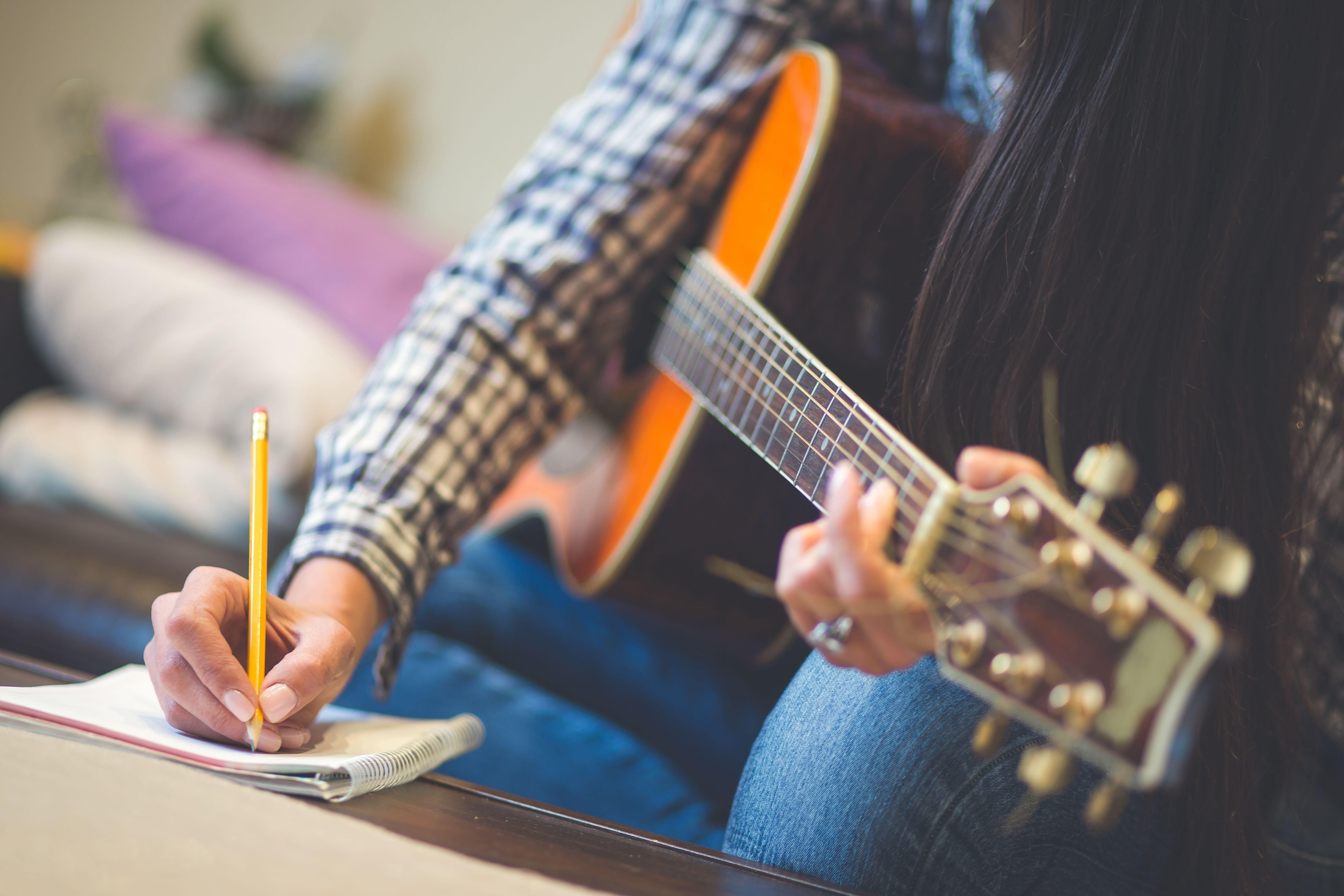
Photo: NoSystem images via Getty Images
news
U.S. Copyright Office Protects Songwriters' Termination Rights
"The Academy applauds the Copyright Office for protecting the rights of songwriters and affirming their ability to receive appropriate compensation after reclaiming their copyrights," says Recording Academy CEO Harvey Mason jr.
In a landmark victory for songwriters, the U.S. Copyright Office issued a new rule on July 10 that ensures songwriters who reclaim their works from their publishers will also receive streaming royalties for those works through The Mechanical Licensing Collective (MLC).
Recording Academy CEO Harvey Mason Jr. spoke on the ruling: "After years of engagement and activism on this issue, the Academy applauds the Copyright Office for protecting the rights of songwriters and affirming their ability to receive appropriate compensation after reclaiming their copyrights. We also thank our friends in the music community for their partnership and collaboration as we fought for this important victory."
Songwriters often sign over the copyright to their music to publishers who then promote, license, and monetize their work. By law, songwriters have "termination rights" which allow them to end their publisher agreement and regain their copyrights after a period of time under certain conditions.
However, the MLC — which administers a blanket license for streaming platforms to use songs — initially determined that royalties generated from streams would continue to go to the license holder at the time a song is uploaded to a streaming service rather than to the current copyright owner at the time a song is streamed.
Starting back in 2020, the Recording Academy, along with other songwriter groups, opposed this practice as it undermined the purpose of termination rights, which exist to level the playing field for songwriters and other creators who may have entered into unfavorable deals.
Since 2020, the Recording Academy held multiple ex parte meetings with the Copyright Office to discuss the impacts of the MLC's determination, and submitted formal comments and reply comments throughout the Office's rulemaking proceedings.
In stating its position, the Academy argued its belief that termination rights are among the most important protections that songwriters, artists, and other creators have for their work. The Academy also urged the USCO to avoid weakening or infringing on these protections.
The U.S. Copyright Office has since agreed with the Recording Academy and deemed the MLC's decision an "erroneous" rule, stating that if a songwriter reclaims the copyright to their music, they should receive the royalties. And after multiple years of rulemaking, the Copyright Office published a final rule last week directing the MLC to distribute royalty payments in accordance with the Copyright Act.
The rule:
Directs the MLC to make future royalty payments to the copyright holder at the time a stream is played.
Directs the MLC to engage in a "corrective adjustment" process to address any overpayments made due to the erroneous rule.
The Recording Academy is proud to champion ownership rights for songwriters and to amplify the voices of small creators. For more information about the new rule, visit here.
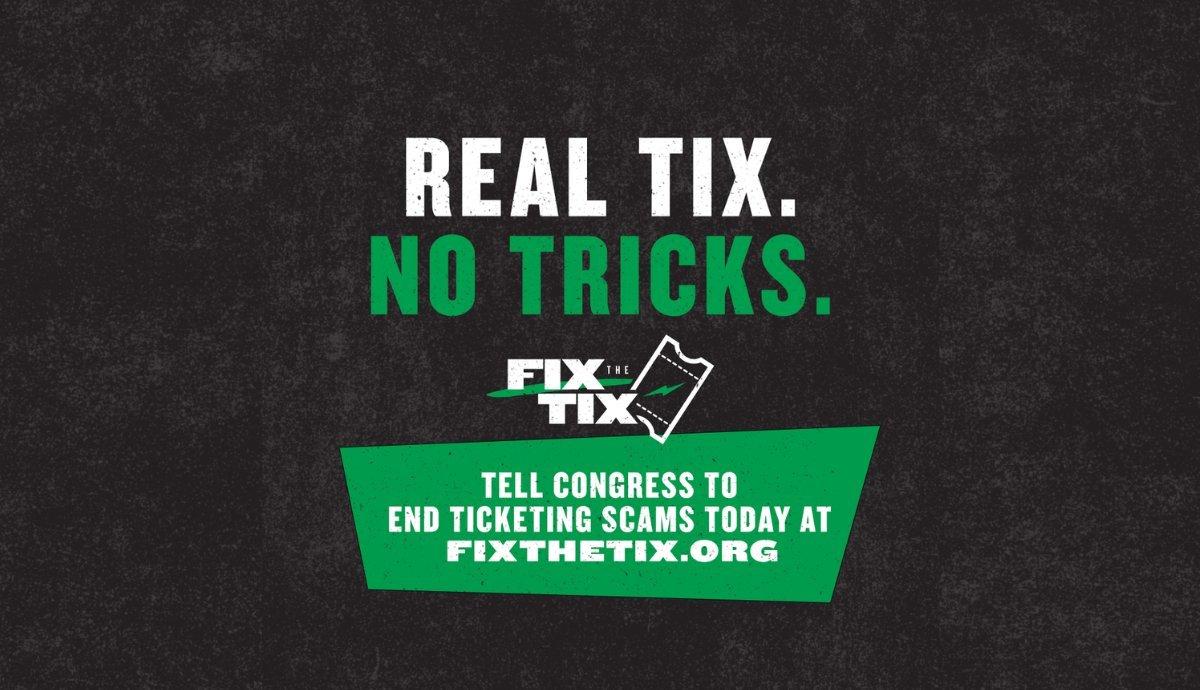
Image courtesy of the Recording Academy
news
The Recording Academy Participates In The Fix The Tix Day Of Action
This push rallied artists, industry organizations, professionals, and fans to urge lawmakers to pass the Senate's Fans First Act. The effort follows the passage of the TICKET Act in the House, which set the stage for meaningful reforms.
On July 9, the Recording Academy, in coordination with the National Independent Venues Association (NIVA), participated in the Fix the Tix Day of Action, which aims to ban fake tickets, deceptive marketing, and hidden costs. This joint push mobilized industry organizations, professionals and fans alike to urge lawmakers to pass the Fans First Act.
Backed by the Recording Academy and introduced by GRAMMYs On The Hill honorees Sen. Amy Klobuchar (D-MN) and Sen. John Cornyn (R-TX), the Fans First Act is the most comprehensive reform undertaken to improve the concert ticket marketplace for consumers.
About the Fans First Act, Recording Academy CEO Harvey Mason jr. said: "With the introduction of the Fans First Act today, the Recording Academy applauds Senators Klobuchar, Cornyn, Blackburn, Luján, Wicker and Welch for taking this important step towards comprehensive ticketing reform.
"As we work together to improve the ticket marketplace," he added, "we urge Congress to act on this bill quickly and continue its effort to protect both artists and fans by increasing transparency and limiting bad actors that take away from the joyous experience of live music."
The Fans First Act requires ticket sellers to disclose and itemize fees upfront, prohibits the use of bots to purchase tickets online and requires sellers to refund consumers the full ticket price if the event is canceled. It also penalizes deceptive marketing tactics — like fake websites — that trick consumers into paying more for tickets that may never get them into a show.
Finally, it prohibits the use of speculative tickets. Also known as "specs," these are tickets that a seller claims they possess but do not actually possess. A new case study across five independent venues in the Washington, D.C. area shows that in 2024, 73,000 speculative tickets have been listed for resale at these venues, totaling an estimated $49 million in potentially fraudulent sales.
The Recording Academy is advocating for Congress to listen to the artists on the stage and pass the Fans First Act to protect consumers, elevate creative economic development, and restore trust in the ticketing experience for fans and artists.
Click here to take action — and keep watching our Advocacy page for updates on how the Recording Academy fights for all music people!
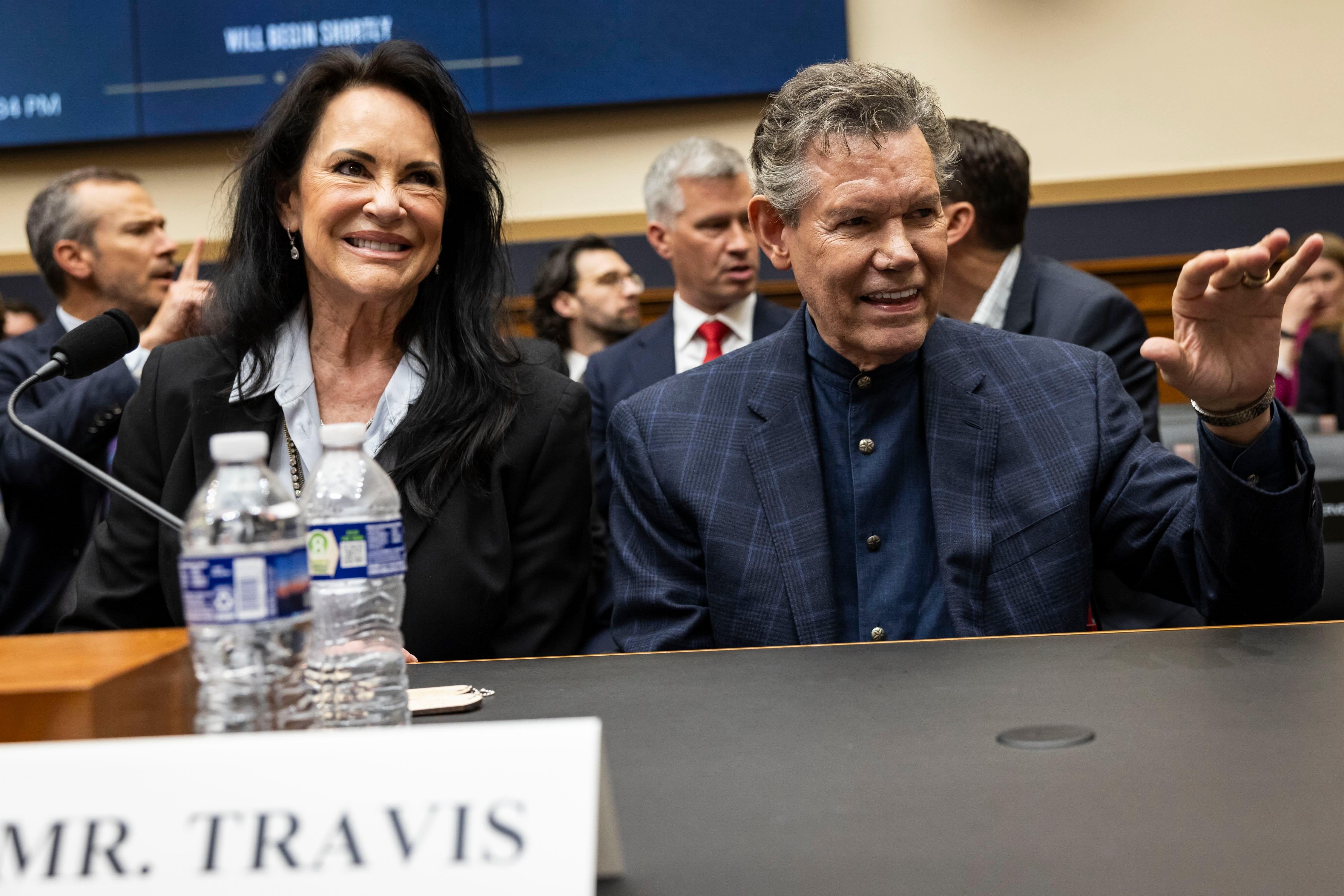
Photo: Samuel Corum/Getty Images
news
Watch: House Judiciary Subcommittee Holds "Radio, Music And Copyrights: 100 Years Of Inequity For Recording Artists" Hearing
The hearing examined why artists and producers don't receive royalty payments for the public performance of their songs by broadcast radio stations and efforts to modernize copyright law.
On Wednesday, June 26, the House Judiciary Subcommittee on Courts, Intellectual Property, and the Internet held a hearing titled "Radio, Music, and Copyrights: 100 Years of Inequity for Recording Artists." The aim of this hearing was to examine an injustice affecting the music community: creators not receiving royalty payments for public broadcasting of their sound recordings on terrestrial radio.
The hearing explored the legislative proposal, the American Music Fairness Act of 2023, which would require a license for broadcasting sound recording via AM/FM radio, and ensure that music creators receive compensation for their work no matter the platform. You can watch the deliberations below:
The hearing witnesses included country legend Randy Travis, who boasts seven GRAMMYs and 16 nominations; Curtis LeGeyt, the President and Chief Executive Officer of the National Association of Broadcasters; Michael Huppe, the President and Chief Executive Officer of SoundExchange; and Eddie Harrell Jr., the Regional Vice President and General Manager of Radio One, Inc., in Cleveland.
As Travis had a stroke 10 years ago that limits his ability to speak, his wife, Mary Travis, testified on his behalf. Her testimony wrapped with, "We ask your help in righting the wrong… ensure that artists are paid for their work, their identity is theirs alone, and the soundtracks of our lives continue to play on… Forever and Ever, Amen!" evoking one of her husband's most iconic tracks.
The Recording Academy is a long-term proponent of the American Music Fairness Act. Sponsored by Rep. Darrell Issa (R-CA) and Rep. Jerry Nadler (D-NY), the AMFA is a balanced solution that ensures music creators are fairly compensated when their songs are played on AM/FM radio, but with carefully crafted exemptions to protect small and local broadcasters.
During the hearing, several members of the subcommittee expressed strong support for the American Music Fairness Act, and many encouraged the radio industry to work with artists and record labels on reaching a solution to end the century-long injustice.
The bill recognizes the property rights of creators, while supporting community broadcasters across the United States. For close to a century, performers, musicians, and studio professionals have been denied the basic right to receive compensation for their work when their music is played by AM/FM radio.
From the foundational performers of the past to today's iconic stars and the thousands of indispensable backing vocalists, instrumentalists, producers, engineers, and mixers, precisely zero dollars have gone to the creators behind the music played on the radio.
To make matters worse, the United States is one of the only countries in the world– a distinction it shares with countries like Cuba, North Korea,and Iran– where this inequity exists, costing artists hundreds of millions of dollars in lost reciprocal royalties overseas in addition to the royalties that aren't paid at home.
The Recording Academy has been championing this issue for almost two decades — and they're far from alone. In December of 2022, during the 117th Congress, identical legislation passed out of the House Judiciary without any recorded opposition — just another reason why the Recording Academy has faith that the AMFA has legs.
Click here for ways to support the American Music Fairness Act and get involved in the advocacy for music creators, and stay tuned for more information about the Academy's continued fight for all music people.
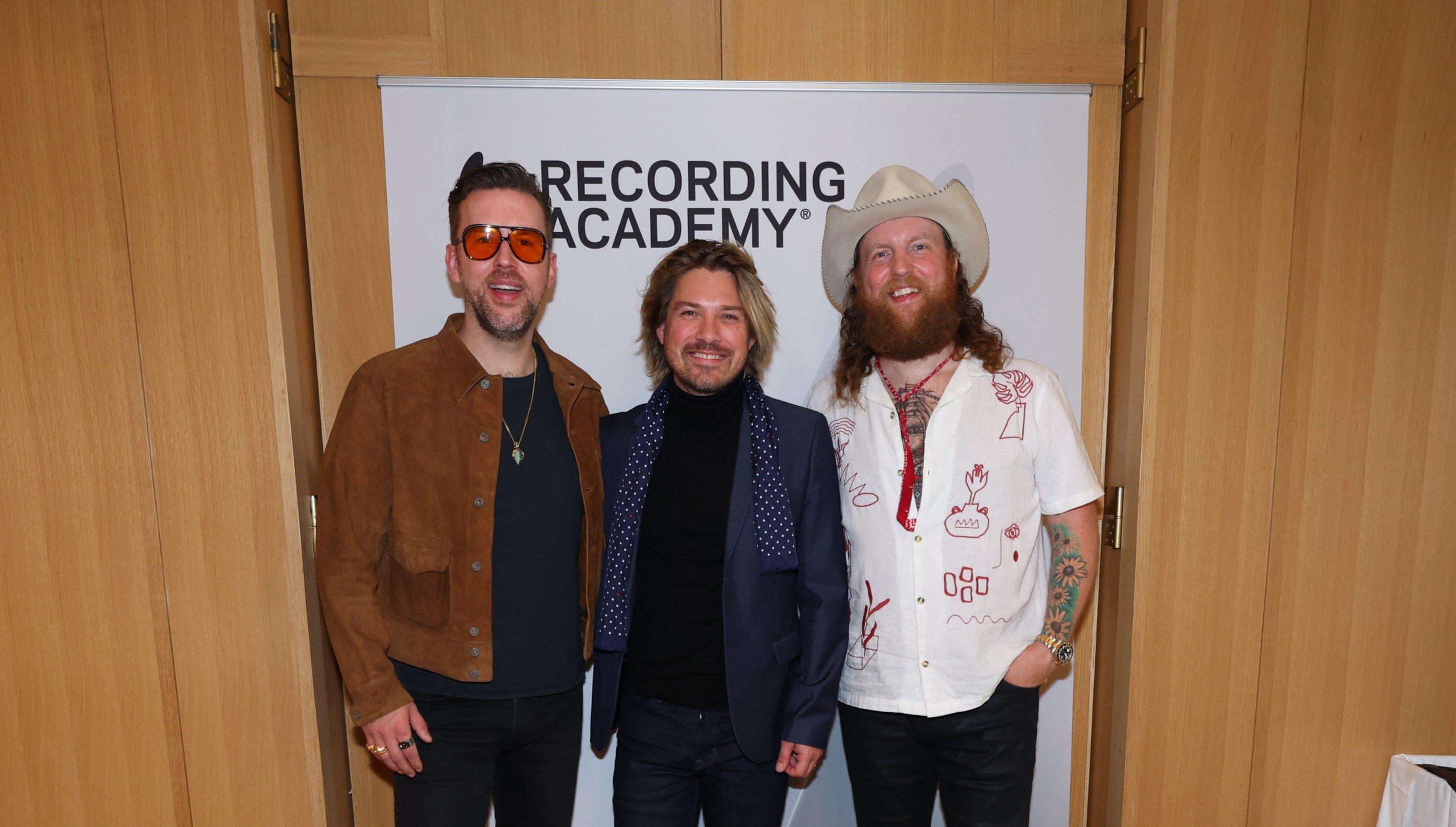
Photo courtesy of the Recording Academy
list
How Newly Elected Recording Academy Trustees Are Involved In Advocacy: Dani Deahl, Taylor Hanson & More
Newly elected Recording Academy Trustees Dani Deahl, Taylor Hanson, Torae Carr, and Sara Gazerak have a history of advocacy for music people. Get to know them below.
The Recording Academy's Board of Trustees has a history of being filled with members that are both passionate about making music and advocating for music creators. The newly elected slate of trustees is no exception and four of the new members continuously show their dedication to advocacy.
Those Trustees are Dani Deahl, Taylor Hanson, Torae Carr, and Sara Gazerak. They're four of a total of 19 leaders of diverse backgrounds and disciplines who have assumed their position on the 2024-2025 Board of Trustees.
Effective June 1, the newly elected Trustees joined the Academy's midterm Trustees, including National Officers Tammy Hurt (Chair), Dr. Chelsey Green (Vice Chair), Gebre Waddell (Secretary/Treasurer), and Christine Albert (Chair Emeritus).
Their mission is to uphold the Academy's core values: to serve and represent the music community at-large through its commitment to promote diversity, equity and inclusion, fight for creators' rights, protect music people in need, preserve music's history, and invest in its future.
About that fight for creator's rights, specifically: read on for these four Trustees' advocacy bona fides.
Dani Deahl
This prominent artist, DJ and producer previously served as the Recording Academy's Chicago Chapter Governor. She's also been a prolific advocate for music makers and the greater music industry.
In March, Deahl testified in front of the Illinois House and Senate on HB 4875/SB 3325 alongside fellow Chicago Chapter member Jeff Becker. HB 4875/SB 3325 represents a crucial step towards modernizing Illinois's Right of Publicity Act for the AI era.
By granting additional enforcement rights and remedies, the bill was created to shield musicians from exploitation by generative AI systems. While existing copyright laws offer some protection, the amendments directly address gaps in safeguarding an artist's name, image, likeness, and voice.
Shortly after the Academy and Deahl's advocacy efforts in Springfield, HB 4875/SB 3325 passed through both the Illinois House and Senate and is with Governor J.B. Pritzker waiting to be signed into law.
On Friday, May 3, Deahl participated in the Recording Academy's Inaugural GRAMMYs on the Hill Future Forum. Designed to provide a space to explore the most pressing issues facing music, this momentous occasion served as a pivotal platform to delve into the impact of artificial intelligence (AI) on the music community. The afternoon consisted of a series of panel discussions curated to explore both the promise and the peril that AI presents to music makers.
Deahl joined GRAMMY nominated producer, emcee, vocalist, and thought leader, Kokayi, and Recording Academy's Chief Advocacy & Public Policy Officer, Todd Dupler, for the first panel of the afternoon.
Throughout the discussion, Deahl demonstrated live how she ethically uses AI as a tool to enhance her music, including stem separation, voice or tone replacement, and song generation. Dani also attended and participated in the 2024 GRAMMYs on the Hill Awards and Advocacy Day.
Taylor Hanson
You know that surname: he's a former Texas Chapter President, three-time GRAMMY nominated artist and member of the band Hanson.
Last August, Recording Academy members of the Texas Chapter, including Taylor Hanson, headed to Oklahoma City to meet with state government officials to build up the relationship between the Oklahoma music community and state leaders.
Throughout the day, the group met with Lieutenant Governor Matt Pinnell and the Deputy Director of the Oklahoma Film and Music Office, Jeanette Stanton, at the state's Capitol before heading to the Governor's Mansion.
During the meeting, they discussed the importance of the music community in Oklahoma, ways the state can continue to be involved in supporting the music community, and how the Recording Academy can be a resource for ensuring artists' voices are heard.
At the Governor's Mansion, Hanson participated in a panel with other Texas Chapter members on the Recording Academy and how Oklahoma Academy members and music creators can get involved. Specifically, the group highlighted the Recording Academy's District Advocate Day, which Hanson has been a vocal supporter of.
Taylor Hanson has participated in numerous District Advocate meetings, attended the 2024 GRAMMY Advocacy Brunch, and has also used his social platform to spread awareness about the Recording Academy's grassroots advocacy movements.
Torae Carr
On May 7, 2024, this rapper and former New York Chapter President joined other members of the Recording Academy's New York chapter and took to the state capitol in Albany. The purpose was to advocate for the passage of A 127, a crucial piece of legislation designed to safeguard the creative works of artists across New York.
Throughout the day, the group met with key members of the Assembly to express their support for the bill and highlight the crucial need to protect artistic freedom during legal proceedings.
At the time of the advocacy day, A 127 had already passed through the senate. Since then, it has been voted through the Assembly Codes Committee with the goal to be voted on in the Assembly in the coming days.
Sara Gazerack
Gazerack isn't just a GRAMMY-winning jazz vocalist: she serves as one of the Los Angeles Chapter's Advocacy Representatives and most recently was a Los Angeles Chapter Governor.
This spring, Sarah joined some 60 GRAMMY winners, nominees, and Recording Academy executives in DC for GRAMMYs on the Hill. Sara met with Rep. Jerry Nadler (D-NY), Rep. Larry Bucshon (R-IN), and policy staff of Rep. Katherine Clark (D-MA).
The Advocacy Day consisted of meetings with Senators and Representatives on Capitol Hill and a visit to the White House for a roundtable discussion on AI policy, ticket reforms, the National Endowment for the Arts, and the president's work on gun violence, before a special conversation with Press Secretary Karine Jean-Pierre.
The Recording Academy commends these Trustees for their commitment to advocacy for music people — and to follow their future work in this regard, keep checking RecordingAcademy.com/Advocacy for up-to-date info!
Illinois Passes AI Digital Replica Protections Law: What To Know About HB 4875
